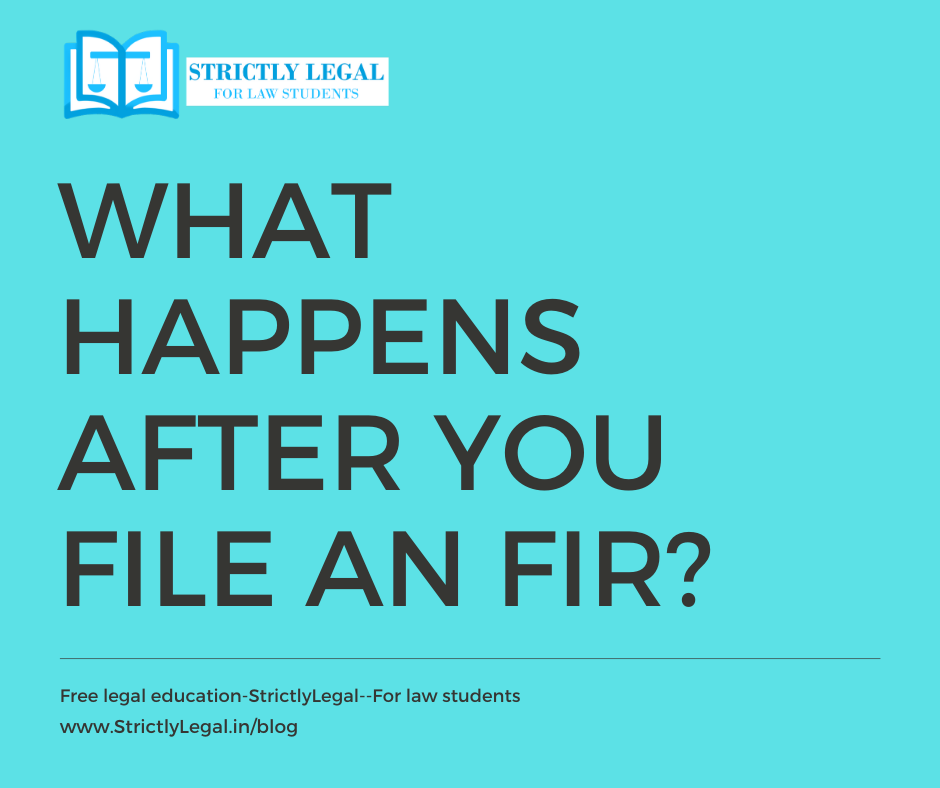In this article, we will discuss the aftermath of filing or registering a First Information Report (FIR). We are often faced with curiosity and questions like What Happens After an FIR is filed? or What does the police do after FIR?
Also, Here’s a link to How to Write a First Information Report (FIR), check it out for more information and tips on writing an FIR.
Table of Contents
The Journey after FIR is filed
Extra Reading
There’s this very IMPORTANT CASE that every Law Student MUST READ. The Supreme court judgment reads and explains the procedure after Filing an FIR very clearly.
When the report forwarded by the Officer-in-charge of a police station to the Magistrate under sub section (2) (i) of section 173 comes up for consideration by the Magistrate, one of two different situations may arise.
The report may conclude that an offence appears to have been committed by a particular person or persons and in such a case, the Magistrate may do one of three things:
(1) he may accept the report and take cognizance of the offence and issue process or
(2) he may disagree with the report and drop the proceeding or
(3) he may direct further investigation under sub-section
(3) of section 156 and require the police to make a further report.The report may on the other hand state that, in the opinion of the police, no offence appears to have been committed and where such a report has been made, the Magistrate again has an option to adopt one of three courses:
(1) he may accept the report and drop the proceeding or
(2) he may disagree with the report and taking the view that there is sufficient ground for proceeding further, take cognizance of the offence and issue process or
(3) he may direct further investigation to be
made by the police under sub-section (3) of section 156.
Where, in either of these two situations, the Magistrate decides to take cognizance of the offence and to
issue process, the informant is not prejudicially affected nor is the injured or in case of death, any relative of the deceased aggrieved,\because cognizance of the offence is taken by the Magistrate and it is decided by the Magistrate that the case shall proceed.But if the Magistrate decides that there is no sufficient ground for proceeding further and drops the proceedings or takes the view that though there is sufficient ground for proceeding against others mentioned in the First Information Report, the informant would certainly
be prejudiced because the First Information Report lodged by him would have failed of its purpose; wholly or in part.
Moreover, when the interest of the informant in prompt and
effective action being taken on the First Information Report
lodged by him is clearly recognised by the provisions
contained in sub-section (2) of section 154, subsection (2)
of section 157 and sub-section (2) (ii) of section 173, it
must be presumed that the informant would equally be
interested in seeing that the Magistrate takes cognizance of
the offence and issues process, because that would be
culmination of the First Information Report lodged by him.Bhagwat Singh vs Commissioner Of Police
The Court is accordingly of the view that in a case where
the Magistrate to whom a report is forwarded under subsection (2) (i) of section 173 decides not to take
cognizance of the offence and to drop the proceedings or
takes the view that there is no sufficient ground for proceeding against some of the persons mentioned in the First Information Report, the Magistrate must give notice to the informant and provide him an opportunity of being heard at the time of consideration of the report, and the difficulty of service of notice on the informant cannot possibly provide any justification for depriving the informant of the opportunity of being heard at the time when the report is considered by the Magistrate.

Passionate about using the law to make a difference in people’s lives. An Advocate by profession.




